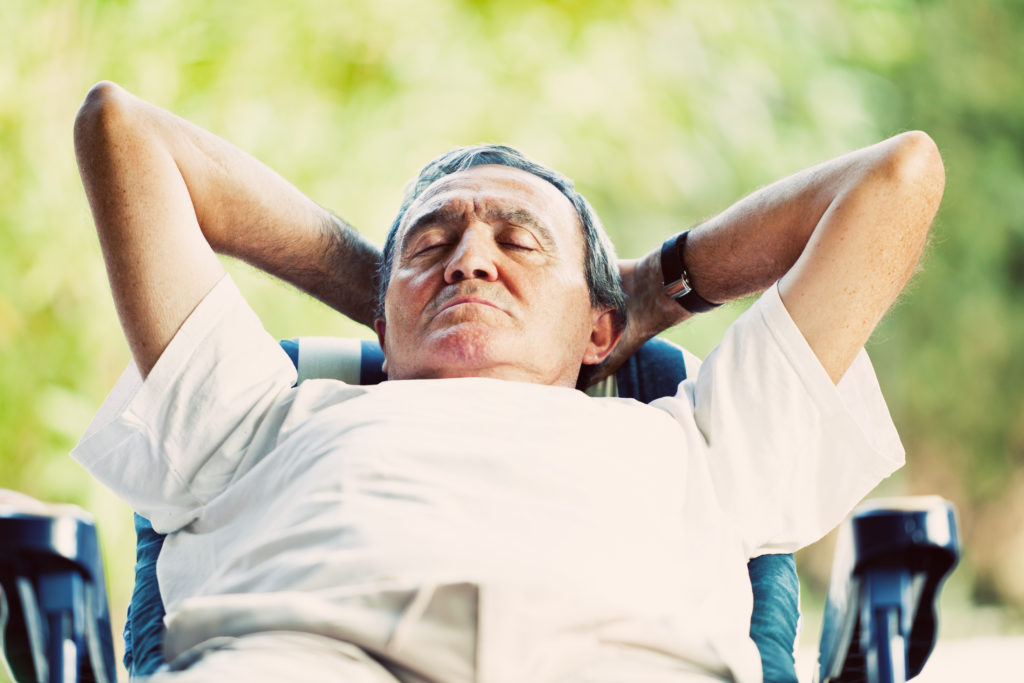Quick Hits
Daily brief research updates from the cognitive sciences
 Who wouldn’t like a daily siesta – especially when it is hot after that post lunch period! And I am sure we have all experienced that desire to sleep when it gets warmer – it pushes us to laze around.
Who wouldn’t like a daily siesta – especially when it is hot after that post lunch period! And I am sure we have all experienced that desire to sleep when it gets warmer – it pushes us to laze around.
Now we may think this is just about activity, but a group of researchers at Northwestern University in the US have peered deeper into the brain to try to find out what is happening. To do this Alpert et al. looked into the brains of fruits flies. Yes, fruit flies. You may not know this but fruit fly brains are commonly used for brain research – their brains are simple – so easier to research, easy to breed, and none of those pesky ethical limitations.
Of note is also that fruit flies have developed all over the world and are attracted to the same temperatures as human beings. They actually seem to have developed to cohabitate with human beings. And this is not the only similarity: they also seem to get dozy under similar conditions when the temperature rises post lunch.
And what did these researchers find?
Well, they managed to identify a circuit in the brain that is a heat circuit and, interestingly this is separate to another cold circuit (so not just one temperature circuit). This suggests that the circuits have distinct functions. They also think they’ve found the spot in the fly brain where these are integrated and therefore impact behaviour. This shows there is separate heat circuit in the brain that directly impacts behaviour and in our case it triggers sleepiness – and not through fatigue which is the normal process.
So, that afternoon nap on a hot day is not your imagination, it is your heat circuit in your brain activating your sleep circuits. And the research shows that an afternoon nap can be very beneficial – so maybe you shouldn’t resist!

Andy Habermacher
Andy is author of leading brains Review, Neuroleadership, and multiple other books. He has been intensively involved in writing and research into neuroleadership and is considered one of Europe’s leading experts. He is also a well-known public speaker, speaking on the brain and human behaviour.
Andy is also a masters athlete (middle distance running) and competes regularly at international competitions (and holds a few national records in his age category).
Reference
Michael H. Alpert, Hamin Gil, Alessia Para, Marco Gallio.
A thermometer circuit for hot temperature adjusts Drosophila behavior to persistent heat.
Current Biology, 2022
DOI: 10.1016/j.cub.2022.07.060
More Quick Hits
Don’t Try to Change Minds – Change Behaviour
Don’t try to change minds, but simply change behaviour is the result a group of researchers have come to with regard to vaccinations.
Tracking Mental States Through Your Skin – In Real Time
Imagine if you are working and your stress levels are increasing, and then automatically soothing music is turned on to calm you down. Or alternatively if you are heading towards that after lunch dip of drowsiness and upbeat energetic music is turned on to energise you.
Testosterone Promotes Cuddling
Quick HitsDaily brief research updates from the cognitive sciences es, you read the headline correctly. Testosterone considered the ultimate male hormone and often associated with aggression has had a bad rap. So, is all of this wrong? Well, the...
Online Learning Triggers Different Stress Responses
Quick HitsDaily brief research updates from the cognitive sciences ot so long ago all learning went online – out of necessity. There has been plenty pf research into differences in online learning and in-person learning but this study by Gellisch...
Use It Or Lose It – Mental Activity Reduces Dementia
Quick HitsDaily brief research updates from the cognitive sciences regularly write on which activities reduce risks of cognitive decline (just last week I reported on how your job can protect your mental abilites with age and also doing household...
Why Thinking Makes You Tired
Quick HitsDaily brief research updates from the cognitive sciences e all know that feeling of having engaged in hard cognitive, thinking, tasks, and feeling tired. If it goes on long enough, we may feel mentally fatigued, drained, or even...






